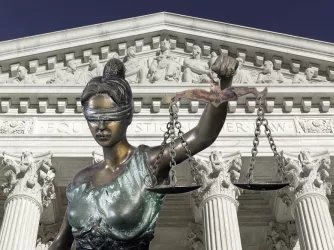Table of Contents
DOJ filing in Iowa student group case cites ‘alarming trend’ of campus First Amendment violations

A statement of interest filed late last month by the U.S. Department of Justice in the case of the University of Iowa Christian student group deregistered by the school for being “unwelcoming” to gay students cites an “alarming trend” of First Amendment rights violations on college campuses.
Business Leaders in Christ, a Christian student group at the University of Iowa, sued the university in 2017 after the school revoked the group’s official recognition, claiming BLinC’s decision to exclude gay members from leadership positions violated the school’s anti-discrimination policy. Administrators launched an investigation into whether the group had violated Iowa’s University Policy on Human Rights after a former member, who is gay, refused to affirm BLinC’s mission statement rejecting homosexuality and was denied a leadership position.
But Iowa’s move violated the Constitution, the DOJ argued in a press release announcing the filing.
“The First Amendment freedoms of association, speech, and religion prohibit public colleges and universities from suppressing the expression and beliefs of student groups that officials disagree with,” the DOJ wrote. “The University of Iowa in this case de-registered Business Leaders in Christ because university officials did not like its message. That is forbidden by the Constitution.”
Public universities are required to protect students’ First Amendment rights. But “too many schools are ignoring their legal obligations,” the department argued, “and they are also undermining the very purpose of a university education, which is to advance learning through a free and robust exchange of ideas.”
“[T]he University has registered many other student organizations [that require members to agree to mission statements], including groups that espouse viewpoints on sexual relationships and gender identity,” the DOJ wrote in their filing. “[W]hile the government may combat discrimination based on status, it may not dictate orthodoxy in a speaker’s message, even where that message might pertain or be ‘unwelcoming’ to some members of a protected class.”
In its Iowa case press release, the DOJ vowed sustained attention on First Amendment cases: “The Department of Justice will continue to get involved in these kinds of cases until this alarming trend is reversed.”
Recent Articles
FIRE’s award-winning Newsdesk covers the free speech news you need to stay informed.

Supreme Court must halt unprecedented TikTok ban to allow review, FIRE argues in new brief to high court

Australia blocks social media for teens while UK mulls blasphemy ban

Free speech advocates converge to support FIRE’s ‘Let's Go Brandon’ federal court appeal
